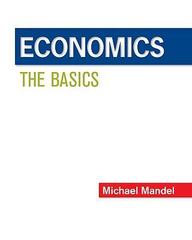Question
Short answer questions. Answer each in up to 200 . Background ****Imagine that you work for the World Bank and you have been called to
Short answer questions. Answer each in up to 200 .
Background
****Imagine that you work for the World Bank and you have been called to Ghana to aid the new president to come up with a new international trade strategy.
You are told that the new government is interested in moving away from agriculture and into manufacturing. To do so, the government wants to pursuit a policy of import substitution industrialization (ISI).
You are given a brief about Ghana highlighting the following points:
- About half of Ghana's population depends on agriculture, but Ghana still imports some of its food.
- The majority of Ghana's people live in rural areas and exist on a subsistence way of life.
- Ghana has one of the highest rates of income inequality in the world.
- Nearly half of the population is employed in agriculture.
QUESTION B.1
Ghana imports and exports food from and to neighbouring Cte d'Ivoire. The latter nation is very similar to Ghana in most ways. Can you explain what may drive two very similar nations to trade?
QUESTION B.2
Ghana's parliament is debating how to undertake ISI. The debate centres on whether they should impose tariffs on imports or use quotas. Which system is better for consumers? (use a diagram to explain yourself).
QUESTION B.3
Ghana's president is also very interested in banning the imports of food in order to increase nutrition in her country. What is the logic behind this? Will it work?
QUESTION B.4
A representative from Ghana's agricultural organisation is very much in favour of closing borders. He argues that consumers and producers will benefit from this. Is he right? Who would benefit most, are there any losers from the policy?
QUESTION B.5
After a meeting with Ghana's president you learn that the government is also interested in repatriating migrants that went to European countries to study engineering a decade ago. Explain how this is likely to change Ghana's comparative advantage.
Step by Step Solution
There are 3 Steps involved in it
Step: 1

Get Instant Access to Expert-Tailored Solutions
See step-by-step solutions with expert insights and AI powered tools for academic success
Step: 2

Step: 3

Ace Your Homework with AI
Get the answers you need in no time with our AI-driven, step-by-step assistance
Get Started


